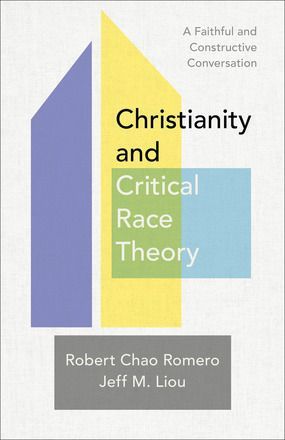Christian Nonviolence, part 2
More discussion around Christian Nonviolence

In this post, I continue the argument for Christian Nonviolence. In the previous post, I focused on Scripture and the early church. Here, I will argue that Christians are called to focus on our citizenship in the Kingdom of God and not in the nations of the world. Enjoy! And, as always, I welcome questions and pushback.
2. Christians are primarily citizens of the Kingdom of God, and not of the kingdoms of this world
My second major point is about citizenship: Christians are first and foremost citizens of the Kingdom of God, with Christ as our King. We are not primarily citizens of the USA or of Canada or of Indonesia or of China or any other nation. We are fellow citizens with Christians from China, from Iran, from Syria, from Albania, from Indonesia, from Palestine, from Russia, from every tribe and tongue and nation. We have more in common with them, including our citizenship, than we do with our neighbors who have rejected Christ. Our allegiance is not to the flag of the USA, nor to a style of government, nor to an economic system or theory. Our allegiance is to Christ and no other allegiance can or should equal that allegiance. Paul makes this point straightforwardly in Philippians (see 2:4-11, 3:20, among others), and Jesus makes that point throughout his ministry - he announces a Kingdom, places himself at the center of that Kingdom, and then inaugurates the Kingdom with his death. This is in political defiance to the Lordship of Caesar. It is true that Jesus’ Kingdom is “not of this world”, but what he means by this is that Jesus’ Kingdom is not “from” or “out of” this world. He will not establish it, maintain it, and increase it using the world’s violent methods. Instead it will grow by use of the deeper magic that works with the grain of creation - by suffering and death. The kingdoms of this world try to maintain control by violence - violence is at the heart of a government’s control over its citizens and at the heart of its defense of itself. Christ’s kingdom renounces violence and expands by suffering and death. And this is my third major point:
3. The weapons of the Kingdom of God are redemptive suffering and death, not violence and war
We have talked about this in the ministry of Jesus and in the New Testament, but it is also just historically true. God’s Kingdom advances when His people are suffering. The early church suffered persecutions and death, and the church grew so significantly that in 300 years Christianity went from being a small band of friends following a dead teacher to the majority religion of one of history’s great empires. By suffering violence rather than inflicting it. This is so true to the practice of the early church that Tertullian has been paraphrased as saying that the “blood of the martyrs is the seed of the church”. This is true today: while Christianity is on the decline in America and Europe, where Christians have been majorities and have not suffered, Christianity is rapidly increasing in China and in other places where Christians are persecuted, where being a Christian involves cost and suffering. China currently, by most estimates, has more Christians than any other country in the world. And not because of the Chinese Christians’ military successes. Suffering and death are the weapons that God chooses to use to advance the Kingdom. Inflicting violence does not serve His purposes, because that’s not how He created the world.
When we support the wars of the nations, we might be helping to advance the causes of the nations (though advocates of nonviolence would be skeptical that the nations' interests are really being advanced, but maybe), but we are certainly not advancing the Kingdom of God. God’s Kingdom does not expand by nations going to war against one another. God can and does work redemptively in the middle of the evils of war, but when the church supports war, it works against God’s purposes and design. Again, part of the problem here is that we get mixed up about our citizenship. We say “our country” when we refer to the US, but that is the country of our sojourning, or our home in exile. Our home, our citizenship, our allegiances are in Christ.
We can and should seek the good of this country, as Jeremiah called the exiles in Babylon - not because Babylon was their home, or because Babylon was a worthy empire, but because God can expand His Kingdom through the influence of faithful exiles, as He did through Daniel. But, as Christians, we are not called to support any and every war that our nation, or home-in-exile, chooses to engage. Advocates of Christian nonviolence would say that we are called to oppose peacefully every war that the nation chooses. We should be a people of and for peace, and our Kingdom spans the globe. We are currently in exile, but one day we will celebrate the Wedding Feast of the Lamb altogether, as sisters and brothers, peacefully eating at the table of the Prince of Peace. And yet we are prepared to kill one another now? In “love”?
I realize--and I'm not trying to dismiss--good, thoughtful, faithful arguments for just war or other kinds of limited violence. And there are really valid questions we could and should ask about Christian Nonviolence. I'm happy to take up those questions if you are interested. As I said at the beginning of part 1, I'm not sure that I land solidly in the Christian Nonviolence camp. But I think the arguments are important to wrestle through for the sake of our discipleship. So, I hope this has been helpful to you as we consider how to follow Jesus in the world together.
Blessings,
Josh
Christian Nonviolence Resources
Torture and Eucharist, by William Cavanaugh (Wiley-Blackwell, 1998)
A Better Hope, by Stanley Hauerwas (Brazos, 2000)
After Christendom, by Stanley Hauerwas (Abingdon Press, 1991)
The Apostolic Tradition, by St. Hippolytus <http://www.bombaxo.com/hippolytus.html>
Fight, by Preston Sprinkle with Andrew Rillera (David C. Cook, 2013)
De Corona, by Tertullian <http://www.ccel.org/ccel/schaff/anf03.iv.vi.i.html>
New Monasticism, by Jonathan Wilson-Hartgrove (Brazos Press, 2008)
The Politics of Jesus, by John Howard Yoder (Eerdmans, 1994)
The War of the Lamb, by John Howard Yoder (Brazos Press, 2009)
Where Do We Go from Here: Chaos or Community?, by Martin Luther King, Jr (Beacon, 2010)
The Kingdom of God Is Within You, by Leo Tolstoy <https://theanarchistlibrary.org/library/leo-tolstoy-the-kingdom-of-god-is-within-you>










